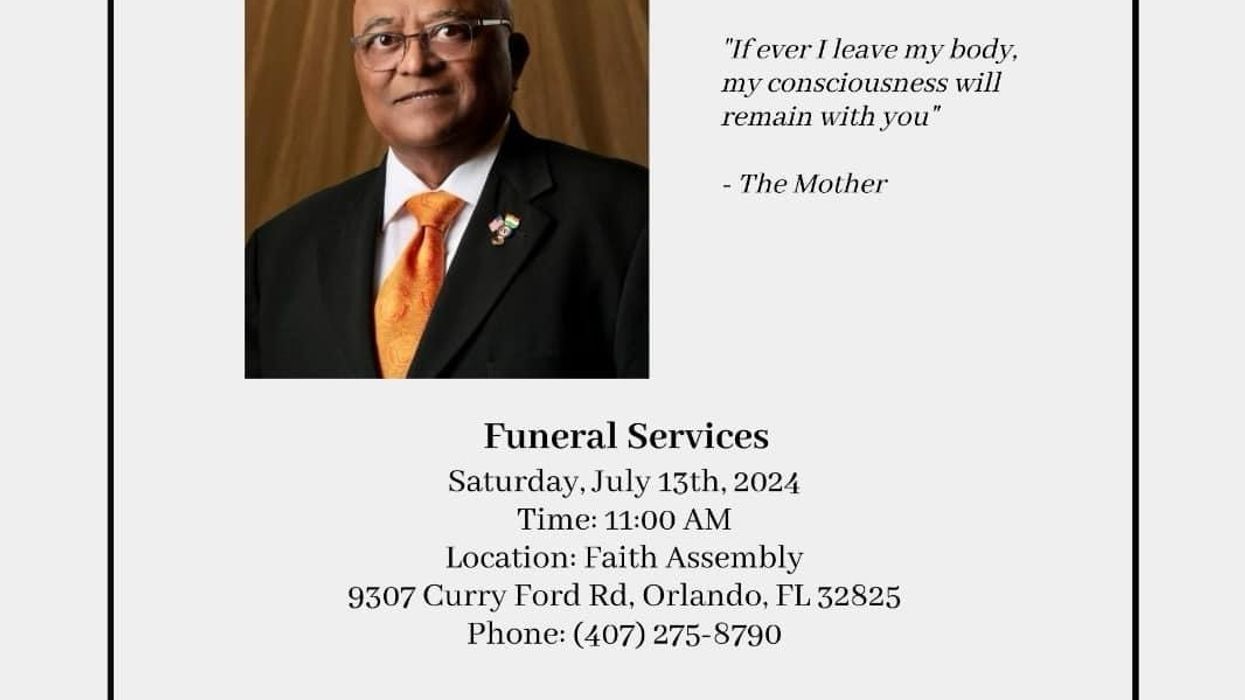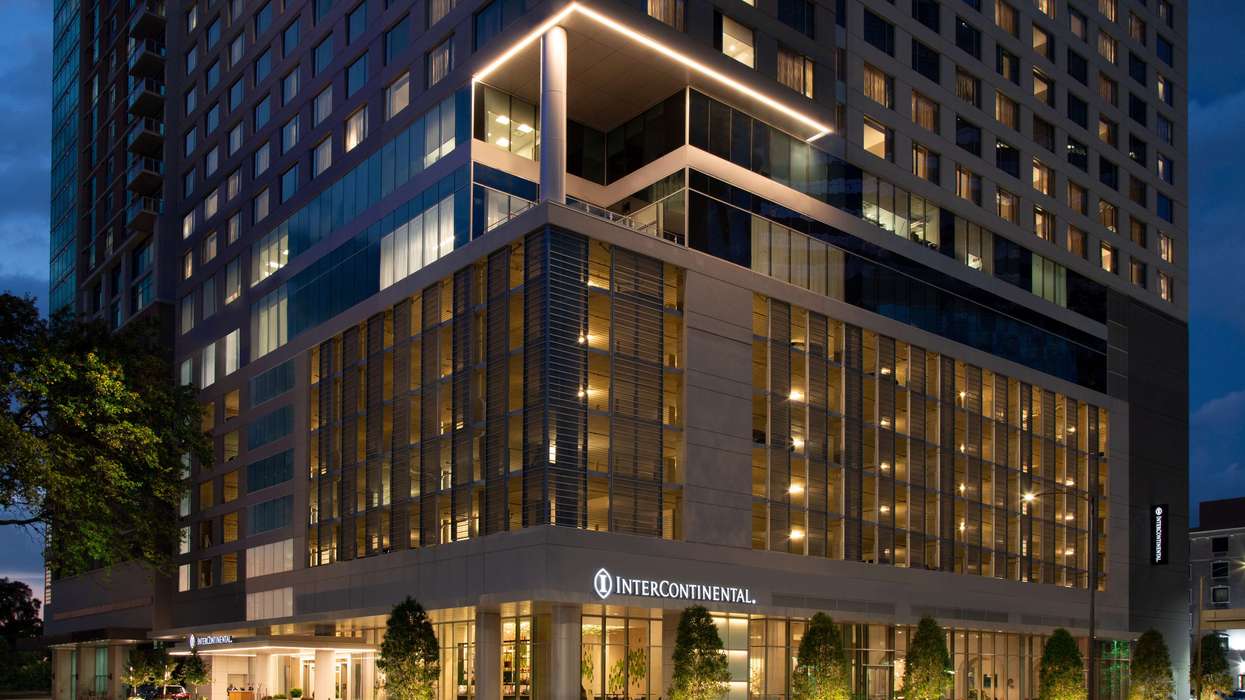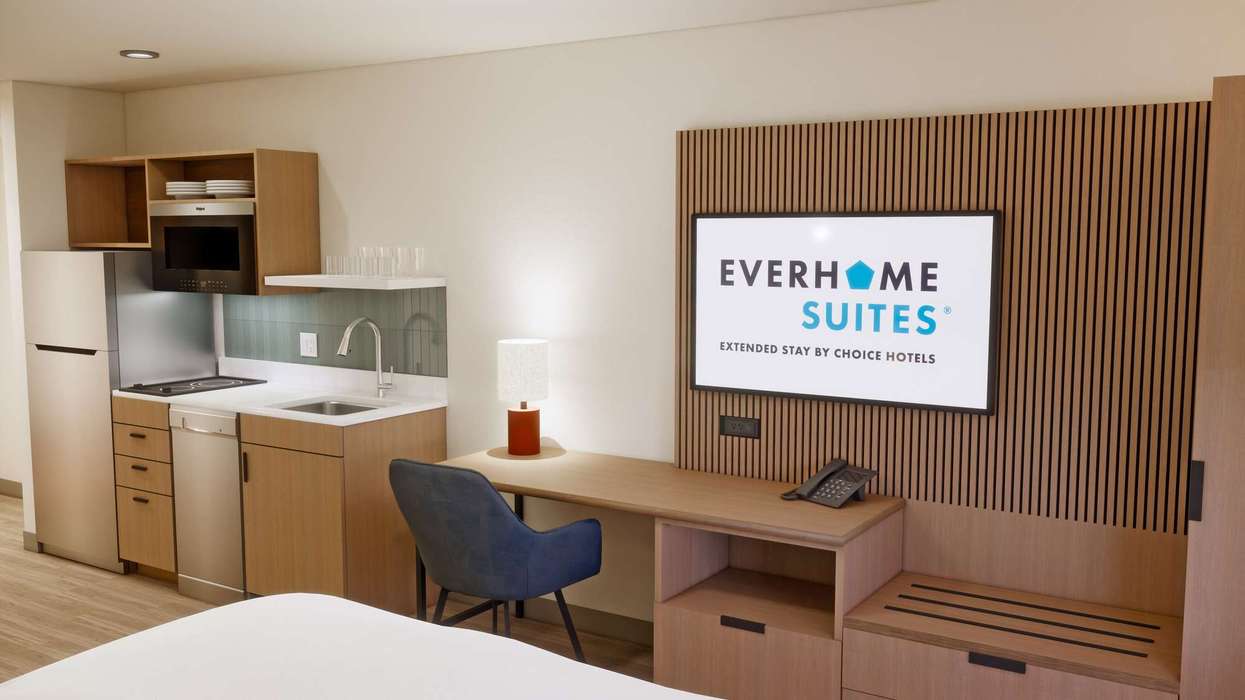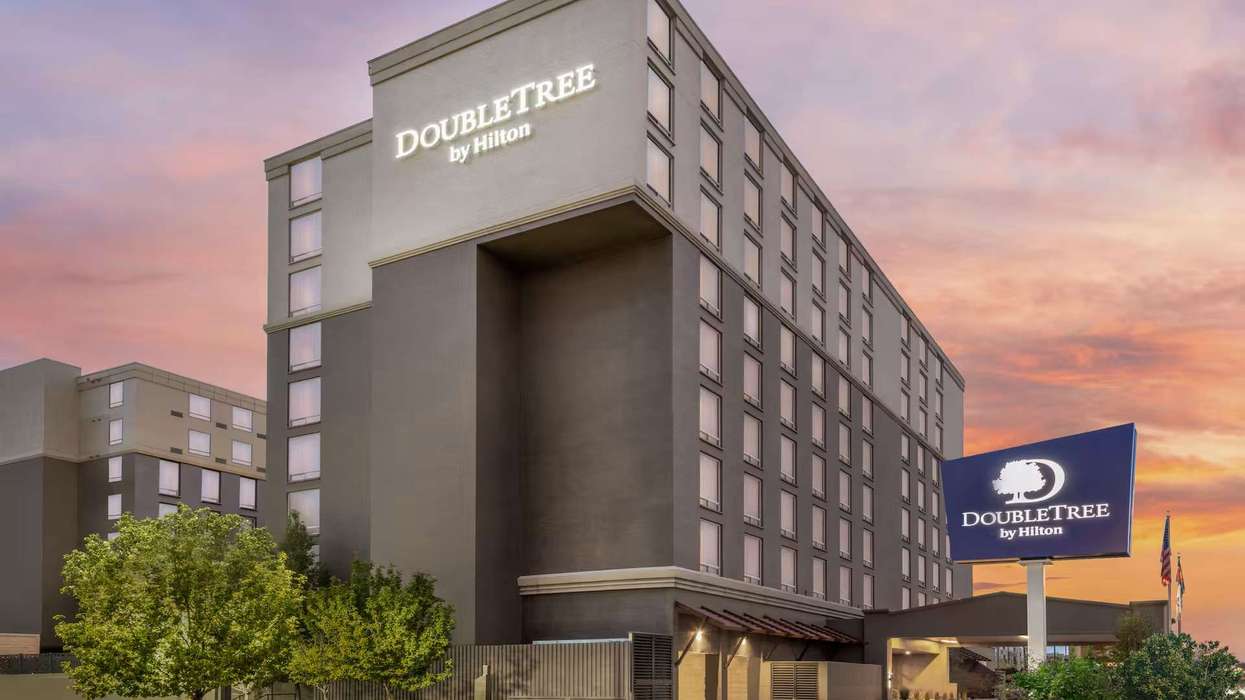Editor’s note: This story has been updated to account for a change in time perspective and to include additional tributes to Rama.
FUNERAL SERVICES WERE held Saturday in Orlando for Manhar P. “MP” Rama, AAHOA past chairman and co-founder of Greenville, South Carolina-based Auro Hotels. Friends, family and colleagues are remembering Rama, who passed away July 7 at age 74, as a man with a big heart.
The funeral was at Faith Assembly on Curry Ford Road. The family asks that, in lieu of flowers, gifts be made to the Mandala Foundation Inc. at 9036 Mayfair Pointe Drive, Orlando, FL 32827.
Rama was born in Africa and raised in India, according to Auro Hotels. He completed high school in Gurukul Supa, Navsari, and graduated from M.S. University of Baroda with a degree in civil engineering. In 1973, he came to the U.S. and attended California State Polytechnic University in Pomona, California, where he earned a master’s degree in engineering. He worked with the city of Pomona before entering the hotel business.
MP Rama served as AAHOA chairman from 2005 to 2006, according to a statement from the association. His brother is AAHOA founder HP Rama and AAHOA past chairman Jayanti P. “JP” Rama, who passed away in February 2022.
Rama is survived by his wife, Surekha, and children, Sima and Vinay Rama, along with his two brothers, HP and Raman “RP” Rama, and his sisters, Madhu Vivek, Hansa Deva, Pushpa Lala and Pravina Thakor.
Other leaders in the industry shared their condolences with the Rama family:
Geoff Ballotti, Wyndham Hotels & Resorts president and CEO
“[Rama was a] kind, caring person with ‘an awful big heart.
“I've been close to the Rama family for years. They're part of the founding fathers of AAHOA, incredibly giving, caring, powerful, thoughtful forces of what we've been supportive of for all these years. [His family] has our hearts and prayers.”
Krishna Paliwal, president of Hawthorn Extended Stay by Wyndham and head of architecture, design and construction for Wyndham Hotels & Resorts
“The Ramas are a great family, some of the founding fathers of AAHOA, who have done great things for the hotel industry and for our company.”
Hemant Patel, AAHOA past chairman 2011-2012
“I had the distinct pleasure to serve on AAHOA board with MP Rama. M.P. Rama was truly a gem of a person. He played the role of mentor to me. His loss is a personal loss to me as I lost a near and dear friend. He was a very humble, giving and grounded person. He always wanted to help others. The lodging industry has lost an Icon. His charity work in his Malawi, Africa, helped a lot of poor and needy people. MP will be missed, and his memories will be in our heart forever.”
Mitch Patel, Vision Hospitality Group president and CEO
“MP Rama's passing marks the loss of an exceptional individual whose influence extended far beyond his achievements in the hospitality industry. As a family friend, I witnessed firsthand his unwavering dedication and commitment to his family, community and this industry. He was always so personable, generous and supportive of young people in our industry.
“MP Uncle’s journey from Africa to India and finally to the United States, where he co-founded JHM Hotels is a testament of perseverance. His leadership roles as past Chair of AAHOA, the Marriott Advisory Council, the University of Central Florida Foundation, and numerous other organizations reflect his profound impact and service.
“His efforts laid the foundation upon which many of us now stand, and his legacy will continue to inspire us for generations. M.P. Uncle’s life was one of perseverance, leadership, and community service. His memory will forever be cherished, and his contributions will never be forgotten.
“Our hearts go out to Surekha Aunty, Sima, Vinay and the entire Rama family during this difficult time. May we honor his memory by continuing to build upon the foundation he and his family have created.”
Mit Shah, Noble Investment Group president
“MP Uncle always honored the bonds of family while leading a life that mattered to so many. May God rest his beautiful soul.”
Sunil “Sunny” Tolani, The Prince Organization CEO
“I have been his and his family’s fan since 2006, reading about them and following them in hospitality news. He also urged new hotel owners and young people to get involved in AAHOA and the industry. That is why I started to bring my own two sons to hotels, meetings and conferences since they were less than a year old. Looking up to them, we are constantly striving to be the best version of ourselves, staying true to our values.
“One time, I read, despite his huge success, no task was beneath him. He would often make beds or conduct repairs in his hotels and will be remembered for his lasting contribution to AAHOA, his honesty and integrity and his commitment to his family. MP Rama was a true leader. He and his brothers HP and JP are iconic examples for all of us. They worked incredibly hard and accomplished many wonderful things. I have no doubt that their family will continue the great work and help grow the legacy.”
Jay “Jimmy” Patel, AAHOA past chairman 2016-2017
“There have been only a handful of individuals who we can truly point to as individuals who have played a significant role in forming AAHOA. Most of us in the industry have all heard about the Rama Family and how they have been influential in making in-roads for the Asian American Hotelier Community. MP Rama was one of the key Rama brothers who helped us form AAHOA and took a leadership role in the organization. MP Rama had been involved from AAHOA’s infancy and in 2005 he served as AAHOA chairman after serving the board for several years.
“MP was from Malawi in Africa and was an Indian educated engineer who earned a post graduate degree in the United States prior to his involvement in the Lodging Industry. He also had received many awards and accolades as he had served on the Marriott advisory council, the University of Central Florida Board, the Vedic Center of Greenville Board, the Advisory Council for Hampton by Hilton, the Greenville CVB and the South Carolina Hospitality Association Boards.
“As I became a regional director in 2009 and the chairman of 2016, I did not get the opportunity to serve AAHOA alongside MP, I had over the past decade consulted with MP for advice from his industry knowledge. As an AAHOA Past Chairman, he continued to remain involved with the organization and severed on several committees over the last decade. There have been many times where we discussed processes that could be implemented that could help continue AAHOA’s positive trajectory. Prior to the last convention in Orlando, we had a specific discussion regarding AAHOA’s finances and the specific needs and direction needed and we brought those discussion points to our last PCC meeting in Orlando. MP always wanted the best for the organization and wanted to secure AAHOA’s future by staying involved.
“MP also played a significant role in helping the Leuva Patidar Samaj (LPS) of USA. MP helped organize the LPS of USA Convention in Orlando several years ago and further often attended and participated with the organization. In 2019, when I became President of LPS of USA, we were honored with his attendance at our conference in Dallas. We had several discussions regarding how best to serve the organization. Just last month, we met at the Marriott Connect conference in Orlando and had an opportunity to further catch up and discuss the industry.
“MP Rama will definitely be missed and as Asian Americans we all thank him for being such a significant and impactful leader. MP and the Rama family have and continue to be true pioneers within our Leuva Patidar community and they continue to leave their mark on the Lodging Industry.”
Kalpesh Joshi, AAHOA Upper Midwest regional director
“MP Rama was a great human being and always available to help others, particularly during the pandemic. He was one of the first hoteliers to offer free rooms for Indian students who had no place to go. May his soul rest in peace.”






